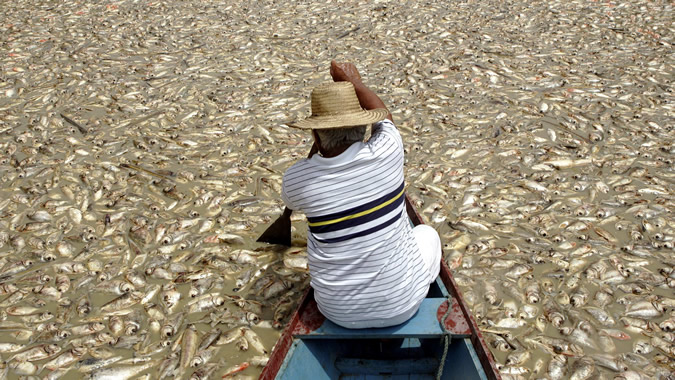Region's Countries Analyze Access Rights in Environmental Matters
Work area(s)
ECLAC organizes two events in San José in its role as technical secretariat of the process to implement Principle 10 of the Rio Declaration on Environment and Development.

(10 September 2014) Representatives from the region's signatory countries to a declaration that promotes access to information, participation and justice in environmental matters, together with specialists and members of civil society, are participating through this Thursday, September 11 in two events organized by the Economic Commission for Latin America and the Caribbean (ECLAC) in San José, Costa Rica.
The events are the Capacity-building and good practices workshop on the implementation of Principle 10 of the Rio Declaration on Environment and Development, which took place on Tuesday 9, and the Seventh meetings of the Working Groups established in the Plan of Action to 2014 of the Declaration on Principle 10.
The Declaration on the implementation of Principle 10 -which recognizes the importance of access to information, participation and justice in environmental matters- has been signed by 18 countries of the region since 2012: Argentina, Brazil, Chile, Colombia, Costa Rica, Ecuador, El Salvador, Guatemala, Honduras, Jamaica, Mexico, Panama, Paraguay, Peru, Dominican Republic, Saint Vincent and the Grenadines, Trinidad and Tobago and Uruguay.
In the framework of this process, under ECLAC's oversight as technical secretariat, the countries approved a road map (2012), a Plan of Action to 2014 (2013) and a common view (2013) to move toward the construction of a regional convention that enables the thorough implementation of access rights in environmental matters.
At the Workshop inauguration, Patricia Madrigal, Costa Rica's Vice Minister of Environment, said that the application of Principle 10 in the region will bring countries closer to a culture of tolerance and will not allow the costs of environmental conservation go to the most vulnerable ones. It will also help prevent the surge of socio-environmental conflicts that have created great social strain in some countries, she stressed.
The Vice Minister thanked the support given by ECLAC to this process and showed optimism regarding the endorsement of a regional convention in the forth meeting of focal points scheduled for next November in Santiago, Chile.
Carlos de Miguel, Head of the Public Policies for Sustainable Development Unit of ECLAC's Sustainable Development and Human Settlements Division, highlighted that access rights in environmental matters are going to be fundamental in the implementation and oversight of the new development agenda beyond 2015 and of the Sustainable Development Goals.
In his opinion, "the construction of a new future will only be possible if the environmental pillar is integrated thoroughly in the development agenda," for which structural changes are required. In that sense, the international official called for the countries to keep moving towards the implementation of Principle 10 and strengthening environmental statistics.
Andrea Alarcón, representative of the Colombian Ministry of Foreign Affairs, invited the countries to seize the good practices introduced in the meeting as "opportunities of bilateral and regional cooperation," while Antonio Chang, from Panama's Environmental Advocacy Center (CIAM), underlined the guiding principles of the process: equality, inclusion, transparency, proactivity, collaboration, non-regression and progressive realization.
Country(ies)
- Latin America and the Caribbean
Contact
Public Information Unit
- prensa@cepal.org
- (56 2) 2210 2040